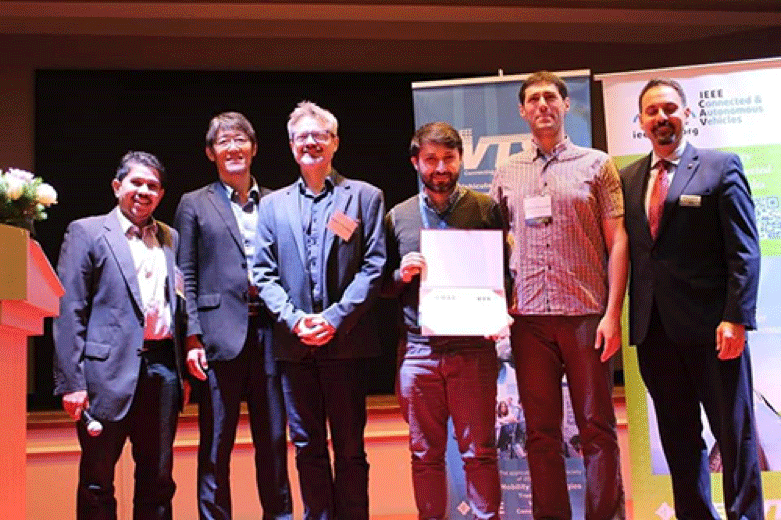A team from the University of Bristol has won an award for its work on the infrastructure required for connected and autonomous vehicles (CAVs).
The award-winning paper from academics in the Communication Systems & Networks (CSN) Group from the University of Bristol’s Smart Internet Lab at the School of Computer Science, focuses on the new paradigm of the Internet of Vehicles and how the required infrastructure will transform the system from a swarm of autonomous cars that merely tolerate each other to an orchestrated transportation machine.
The technology designed by the team is detailed in the paper Agile data offloading over novel fog computing infrastructure for CAVs’ which won an award at the IEEE Vehicular Technology Conference (VTC), held in Kuala Lumpur, Malaysia, this month. A collaboration between the University of Bristol and British multinational Atkins, it won the coveted ‘Best Conference Paper Award’.
The paper explores how the new world of collaborative CAVs will necessitate the development of new road infrastructure, with existing assets such as traffic lights and road signage being augmented (or even replaced) by distributed compute and digital network infrastructures.
The CSN group at the University of Bristol is the main cyberphysical infrastructure architect within the FLOURISH project consortium, a partnership that develops and tests new cyberphysical infrastructures for future automated vehicles.
The group developed the novel Fog Compute framework. The idea behind the framework is that it augments cloud computing with additional resources which are located in the proximity of CAVs. This reduces the latency of communication between vehicles and the infrastructure and facilitates additional safety critical services. The Fog resources are also used to enable sophisticated trust certificates compression, network coding and CAV data offloading technologies.
Dr Andrea Tassi, lead author of the paper, said, “The cooperation between self-driving vehicles will require the exchange of vast amounts of data with the roadside infrastructure. In our paper, we present a way of decoupling the relay of sensor data to and from CAVs, with the resource-intensive task of processing them.”
His teammate Dr Ioannis Mavromatis added, “We do so by employing a network of Fog Compute nodes and designing an agile and reliable data-offloading mechanism. Building upon our real-world, large-scale urban trials, we validated the effectiveness and feasibility of our proposal.”
Project lead Prof. Robert Piechocki described the award as the “culmination of many years of research and hard work by a large number of people”.


